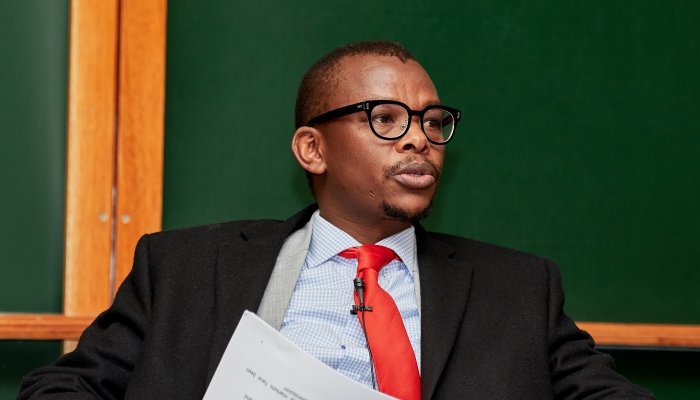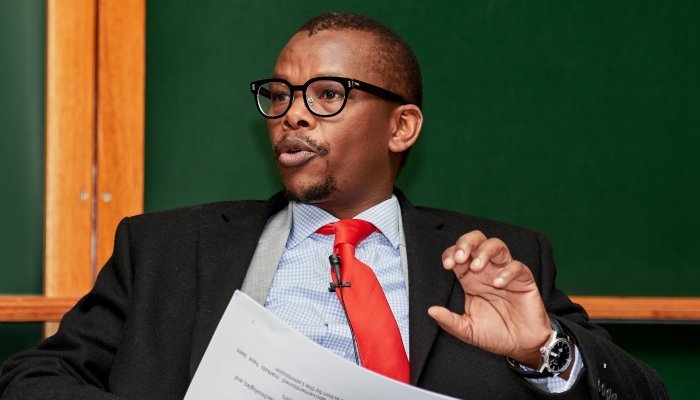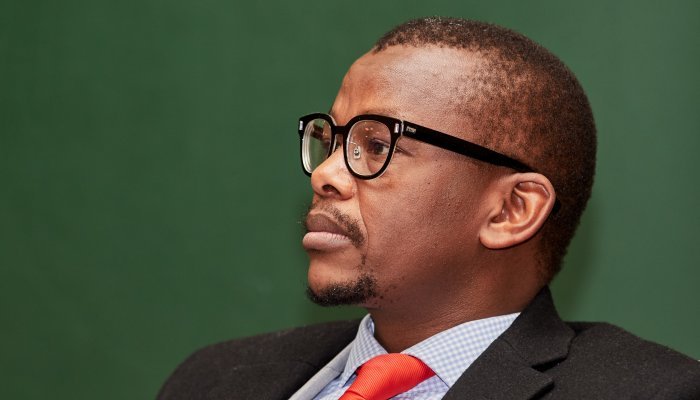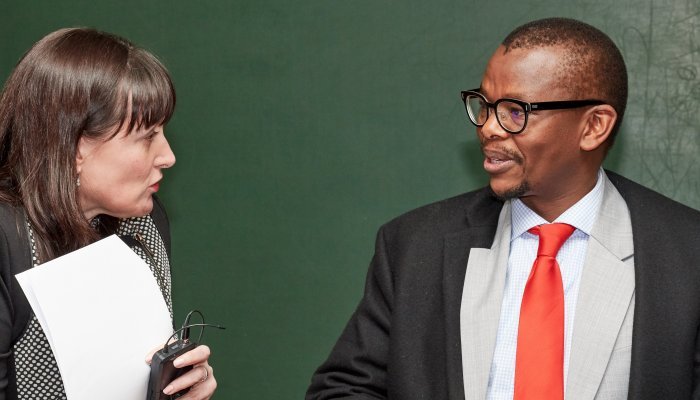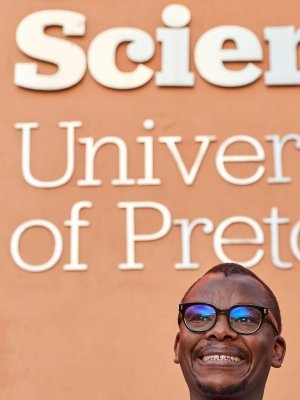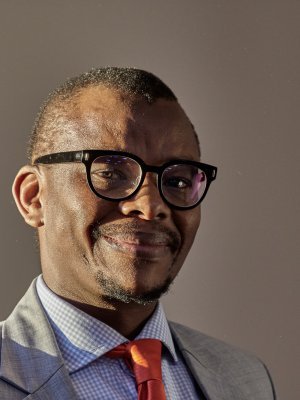“Every time we go fishing, we seem to catch something. If there were no cartels, we would find nothing,” says Bonakele, who is also a GIBS MBA, confirming an observation that the Competition Commission, which he heads, appears to have had a very busy year.
Hunting cartels is a deliberate strategy, he says, explaining that they are economically very damaging.
“We have whistle-blowers, people who work inside the firms themselves. We also have a Corporate Leniency Policy, which we use deliberately to destabilise the cartels. It’s the classic prisoner’s dilemma: if you tell us everything, we will give you immunity. You then have to decide yourself whether you stay within that cartel, knowing that everyone else in the cartel also knows that they can go and report to the authorities and get immunity.”
Apartheid's cartels
Bonakele believes that South Africa’s multiplicity of cartels finds its roots back in the structure of apartheid South Africa, with its history of control boards and state-sanctioned cartels, like cement, chemicals and agricultural products.
“A lot of big companies were protected by the state from competition. The culture of business has not evolved,” he says, adding that “liberalising and opening up markets does take time.”
He notes that something peculiar to South Africa is the fact that when a market previously dominated by a single, massive, state-supported player is opened “to a little bit of competition”, the dominant company “actually gets involved in organising the cartel.”
That’s why Arcelormittal – previously Iscor – was fined R1.5 billion in 2016 and, a few years ago, Sasol’s fertiliser division R250 million, for abuse of their market-dominant positions, reinforced by cartels. The Arcelormittal fine is the biggest to date in South African competition law history.
Because of the cartels and the oligopolies, Bonakele believes South Africa’s economy is hamstrung. Nor is this just his opinion. He cites a Spanish economist who had opposed the Commission in the case against Sasol for excessive pricing in polymers.
“This gentleman asked me how the economy was doing and I told him the bad news, which we’re all aware of. He told me it was a pity because, in his view, he had not seen an economy with such potential, with the kind of firms that we have produced and with the type of innovation here that he had seen. Everybody, the OECD, the World Bank, have all raised this issue of concentration in the South African economy, really undermining its growth and industrialisation ambitions.”
There's a cost
To back his assertion, Bonakele reminds us that South Africa is currently a net importer of plastic products, when once it had been a net exporter: “Part of our deindustrialisation story is about how uncompetitive our inputs are.” A key input into plastic manufacturing was the subject of a recent excessive pricing case brought by the Competition Commission against the dominant producer, Sasol, a case that the Commission lost.
Steel, he says, is another example: “Steel is a classic example of a product that is an input to so many downstream industries. And if you have high prices of that input, then you are unlikely to industrialise. Part of the problem with concentration is that it tends to be in sectors that are key to downstream manufacturing, which affects our competitiveness .”
Another aspect of the same problem, says Bonakele, is that “State-owned monopolies control key infrastructure. We receive complaints all the time against Transnet about its port charges. These affect the competitiveness of the entire economy.”
So how does Bonakele approach the problem of changing this structure?
“It’s a combination of things. Part of it is continuous advocacy within the state to say that a particular monopoly is not working in the national interest and that policies need to change. Sometimes industrial policy can help. But in the case of Transnet, we’ve even opened excessive pricing competition cases for both ports and rail charges/tariffs.”
...on the side of the big battalions
None of this helps the growth of SMMEs, says Bonakele, which is important because that’s the sector which produces employment. He adds that SMMEs are always the most discriminated against because their volumes are low and that there is cross-subsidisation, “where the smaller guy subsidises the bigger guy”. These are things that can be dealt with by enforcing the Competition Act, “but the legal process is very slow and expensive. The easier route is always to change policy when it comes to state-owned enterprises.”
He is emphatic that there is a clear relationship between competition and inclusive growth: “Unless you have deliberate strategies to open up markets, you won’t see dynamism in the economy. So how do we open those markets? Enforcement of competition policy is one route. But proper regulation is just as important.”
Bonakele explains that the Commission is not seeing new entrants appearing in sectors of the economy which are regulated, like broadcasting, telecoms or banking.
“We have not had an entry in the banking sector for a long time. Why? To start a bank, regardless of size, you must pay R250 million. But surely the systemic risk posed by a small, new entrant is very different from the risk posed by one of the Big Four banks?
“You almost need two or three tiers of regulation. Where you can relax regulation a little bit, but not in an irresponsible way – you could still have prudential rules applicable to smaller banks, but as appropriate, based on the risk they pose to the financial system. But to force everyone to apply the same rules when they are starting out at different times, under different conditions, is very unfair.”
It’s the same in the broadcasting and mobile telephony sectors, notes Bonakele. “When you licence a new broadcaster or mobile telephone company, you’ve got to recognise that they will come up against very powerful incumbents, who have accumulated a lot of resources because of the licensing regime. You’ve got to help the entrant a bit.”
He is also concerned about sectors which are not so heavily regulated, like retail.
“If you look at the terms of entry in South Africa today, it’s very difficult. Even to start a retail supermarket. People say it’s easy but it’s not – you’re up against an oligopoly of four firms, very strong with very deep pockets. They’re able to squeeze suppliers. What chance do you have of buying a litre of milk from a producer at the same price as Shoprite? Very little.”
Smart regulation
To help SMMEs requires what Bonakele calls “smart regulation” and he points to procurement legislation within the state.
“Currently, it’s about winner-takes-all, or who can provide the goods or services at the lowest price. But that’s not the way to grow SMMEs, because they will collapse. Instead of encouraging people to buy minority stakes in existing monopolies and oligopolies, give them an opportunity to challenge the incumbents. It’s the only opportunity for sustainable transformation in the economy. We tried many things and none have worked. You can even throw money into the SMMEs and it’s not going to work. What they need is access to markets, so the rules of access, whether they are written or the rules of the market, need to be looked at and, if needs be, tampered with in such a way that they are more balanced.”
Bonakele draws the conversation to a close by highlighting another major concern – the emergence of truly enormous multinational corporations and how these behemoths are regulated – or not. One example he gives is AB InBev’s recent purchase of SABMiller.
“South African Breweries Ltd. in South Africa is already a dominant firm, probably controlling 90% of the market. So, from a competition point of view, all that happens is that AB InBev just replaces SABMiller.
“But there are many other large companies. Walmart is one, with a turnover larger than the economy of any African nation. Not a single African country has annual revenue equal to Walmart’s. So how do you regulate a company like that? Its capacity to put pressure, to lobby, and God forbid, to even corrupt, is so huge that I fear there is a huge regulatory gap in the world. A gap where we see this consolidation, where we are watching, but nobody can do anything about it.”
“Hunting cartels is a deliberate strategy...”
“...there is a clear relationship between competition and inclusive growth...”
“Currently, it’s about winner-takes-all...”


